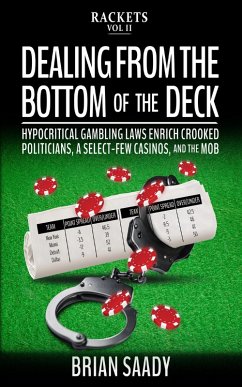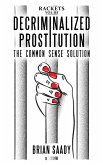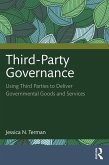This book takes you back to the days of the western frontier when disputes were often settled by gunfire and naïve gamblers were routinely bamboozled. Likewise, gang wars often determined who controlled these underground markets in urban areas. In turn, organized crime used the profits to fuel cycles of political corruption. The examples provided are not only insightful, but they also add to a genuinely entertaining reading experience.
The second volume of the Rackets series covers the birth of the mafia-dominated casino industry. Government officials made numerous blundering mistakes that allowed mobsters to control this industry for decades. Fortunately, appropriate regulations were eventually put in place to remove the criminals from the industry. Now, legalized gambling benefits the taxpayers, not the mafia. However, the legal gambling business is still dominated by "racketeers," i.e. crony capitalists.
Typically, the most powerful casinos exploit our political system by opposing new forms of legal gambling to suppress competition. Nearly every state has at least one form of legal gambling, but there are multi-billion dollar black markets that still exist. The most notable examples are sports betting and online poker.
You will also discover the remarkable parallels between Wall Street and the gambling industry. The same public officials who pioneered various anti-gambling laws also helped create the circumstances leading to the near-bankruptcies of the "Too Big to Fail" banks. This has much to do with the tainted revolving door between government and the private sector.
Dealing From the Bottom of the Deck makes it clear that gambling needs to be further legalized and regulated. More important, it reveals how stigmatized vices, such as gambling, serve as a distraction that enables vast government corruption.
Editorial Reviews
Eternal Truth: People and institutions - including government - act in their own economic self-interest. (Sorry to shock you.) So that is how government, which is a huge special-interest group, has been acting -from its inception. In that regard, things like mind-altering and sometimes addicting drugs, prostitution and gambling have always been present in every society. But if government makes them illegal, its pawns a big bureaucracy to enforce those laws of prohibition. And that necessarily increases the size, cost and power of government, which government likes. But if the products are regulated and controlled, then two things happen. First the Al Capones and pimps of those worlds will lose so much money that they will probably go out business and, second,those products will be delivered more safely, and will also be taxed.And through all of that, the amount of drugs, prostitution and gambling will most likely stay about the same. So what's not to like? This is what Brian Saady shows so forcefully and completely in his trilogy - which is a strong and healthy addition to the "common wisdom." Read it, and you will agree. Judge James P. Gray (Ret.) Author of "Why Our Drug Laws Have Failed" (Temple University Press, 2d edition, 2012) and 2012 Libertarian candidate for Vice President, along with Governor Gary Johnson as the candidate for President.
"...Cogent, clear and convincing, "Dealing" is an essential entry in the gambling canon."
Michael Konik, author of "The Smart Money"
Dieser Download kann aus rechtlichen Gründen nur mit Rechnungsadresse in A, B, CY, CZ, D, DK, EW, E, FIN, F, GR, H, IRL, I, LT, L, LR, M, NL, PL, P, R, S, SLO, SK ausgeliefert werden.









